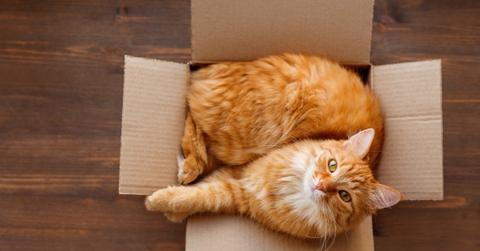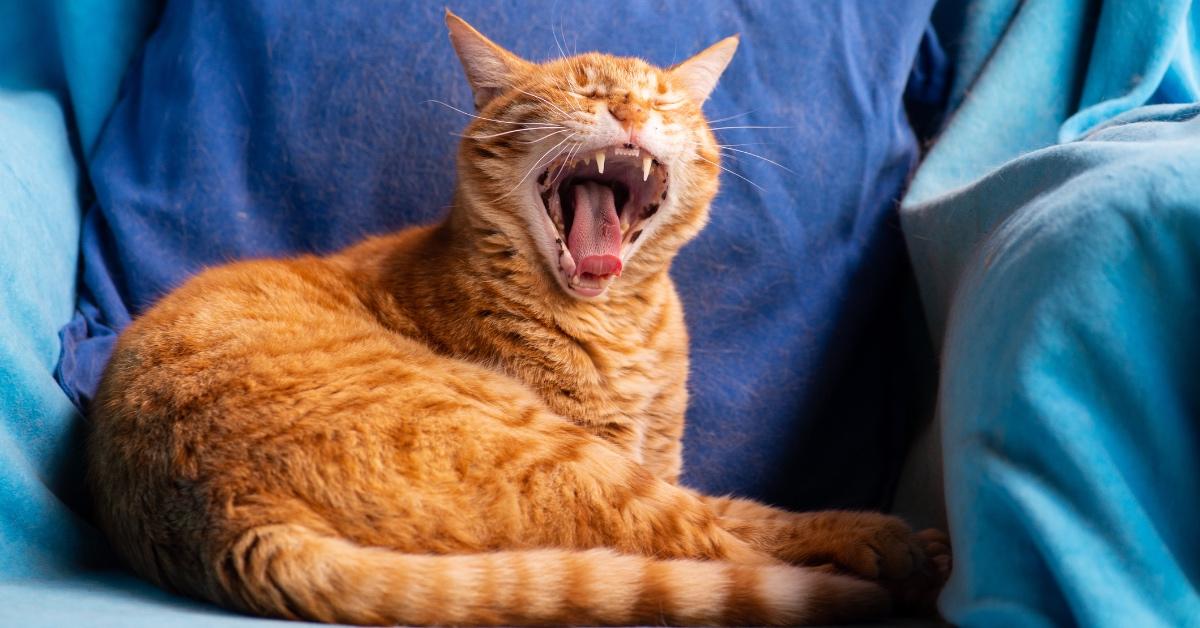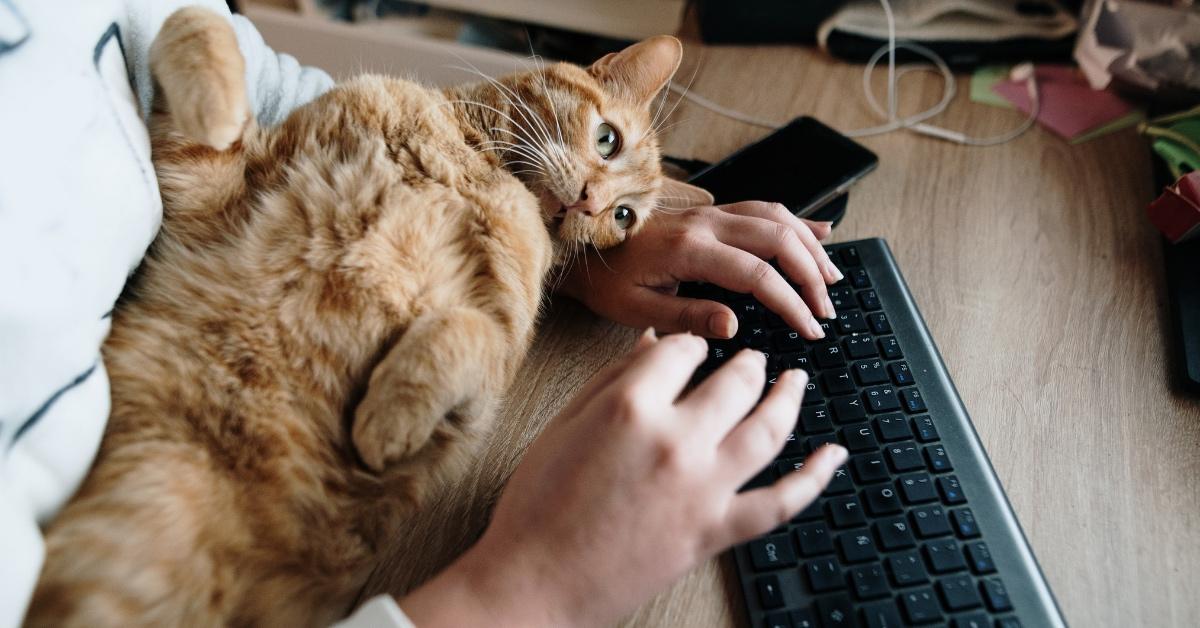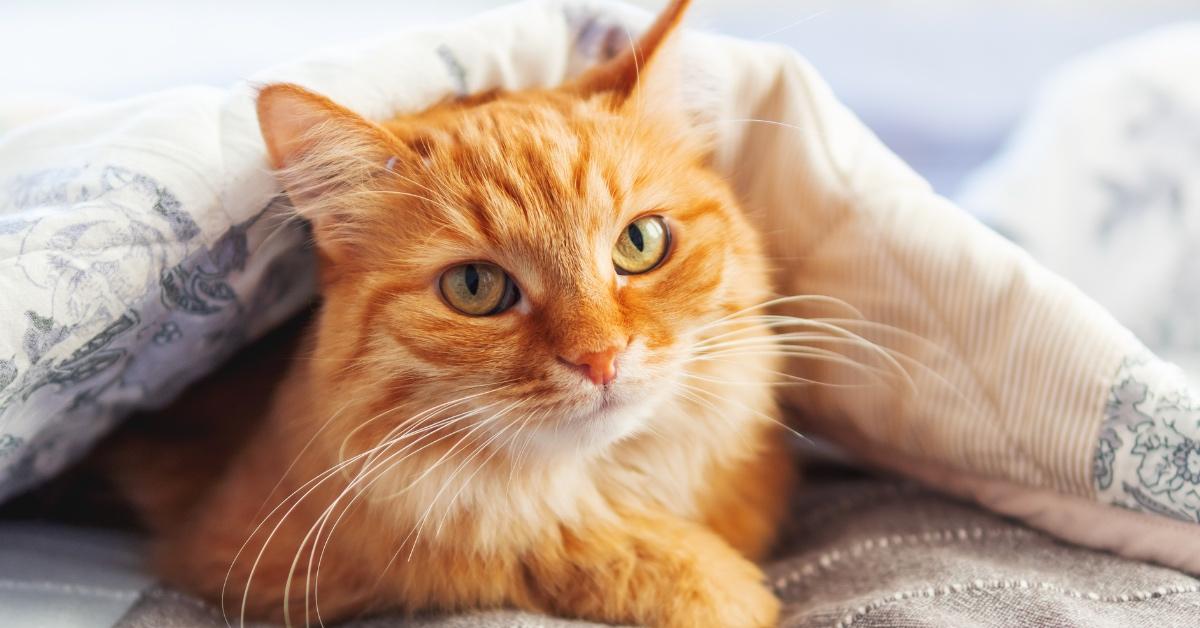What Is "Orange Cat Behavior"? Does It Exist? Let's Unpack Feline Personality Traits
Published Jan. 26 2024, 4:59 p.m. ET

If you're an enthusiastic animal lover or a pet parent yourself, you know there are many stereotypes about creatures in the animal kingdom. Some popular examples of stereotypes against furry friends include "small dogs are more ill-tempered" and "black cats are unlucky." For whatever reason, humans have seen the need to impose stereotypes on animals who will never understand them.
In the past few years, a stereotype about orange cats being energetic or sometimes less intelligent, occasionally dubbed "orange cat behavior," has gone viral. Maybe you've even noticed your furry friend exhibiting some of these behaviors. Why are orange cats so crazy? Keep reading for everything you need to know.

Why are orange cats so crazy? Stereotypes about cat behavior started on the internet.
According to the Internet meme archive Know Your Meme, "orange cat behavior" became popularized online around 2019 and continued after stories about viral orange cats, such as Jorts the Cat, increased. The stereotype suggests orange cats are "more chaotic, more affectionate and more stupid than other types of cats."
A study of cat adoption by the University of California Berkeley in 2012 suggested that humans often judge cats by their colors. However, orange cats seem to have the best reputation overall.
The study noted, "Overall, orange cats and bi-colored cats were characterized as friendly, while black cats, white cats, and tri-colored cats were regarded as more antisocial," per Berkeley Research.

Similarly, a 2020 study about cat coat colors and euthanasia rates suggested that, unfortunately, due to stereotyping, black cats consistently experienced the highest rates of euthanasia, a phenomenon dubbed "Black Cat Bias" in the study. Meanwhile, orange or tri-colored cats were harder to determine data for.
Central Behavior Officer of UK charity Cats Protection, Daniel Warren-Cummings, told IFL Science that pet parents surveyed about cat behavior also present a level of bias.
"Many studies into behavior and appearance are surveys or questionnaires given to the owner/care-giver and we must understand that individuals' understand[ing] of labels such as ‘friendly’ will vary drastically."

What kind of personality do orange cats have?
The easiest answer to this question is: orange cats can have any kind of personality you can imagine! Many orange cats are quiet, passive beings, while others might be more high-maintenance or energetic.
Personally speaking, my orange cat is a senior citizen at fifteen years old, and he is the least "crazy" cat I know. As typical of cats, he spends all day napping, except for the ten minutes after dinner when he's awake enough to request snuggles. Go figure!
If you're looking for a furry friend of your own (orange or otherwise), the best way to know which pet is right for you is to adopt, don't shop. Animal shelters typically have foster care systems designed to help pets adjust to living in homes after being rescued, and the foster parents can also provide a lot of insight into the animal's behavior before you bring them home.